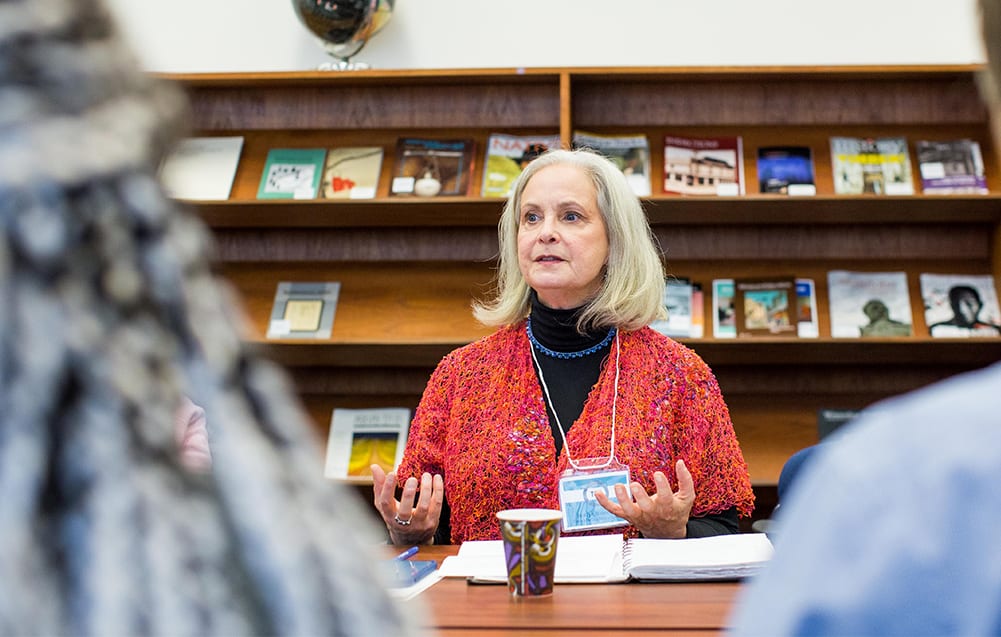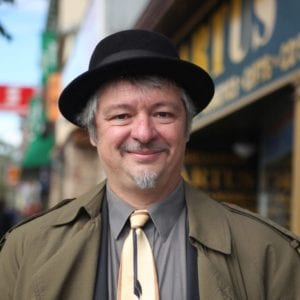Author of the Month: Andrew K. Borkowski

Diaspora Dialogues
December 3, 2012

Tell us about yourself.

I was born and raised in Toronto’s Polish community on Roncesvalles Avenue, studied Journalism and English at Carleton University, spent eight or nine years after that working odd jobs, doing bits of theatre and freelance journalism. I spent two years in England learning how not to write a novel, then came back to Toronto where I settled into making a living as a freelance journalist and editor. I kept writing fiction throughout this time—short stories which began appearing in quarterlies in the late 1990s and eventually evolved into Copernicus Avenue, a collection of linked stories about Roncesvalles which was published by Cormorant Books in 2011 and won the Toronto Book Award in 2012. I’ve pursued music as a sideline, serving as vocalist, keyboard player and occasional song writer for a local blues/jazz ensemble The Grayceful Daddies.
Tell us about the piece you’ve decided to share.
“By the Bath House” is the first story I ever wrote and revised to a finished state. It’s set on Sunnyside Beach in the shadow of the bathing pavilion which, in those days, was in a pretty decrepit state. “Bath House” was never published, but I read a bit of it to a CBC reporter covering an event for would-be authors at the Harbourfront. The clip, and a short interview, was broadcast on CBC Radio’s Morningside. The host at the time was Don Harron, who said “He sounds honest, he sounds dedicated, I think he’ll make it.” The reporter commented that she thought I used too many adjectives.
When did you realize you had a passion for writing?
Very early. At age six I was filling notebooks with half-invented accounts of “My Adventures.” The first time I ever thought I’d like to make a career of writing was on a family visit to the Leacock Home in Orillia when I was about twelve. I remember standing in the room where Stephen Leacock did his writing, in a boat house overlooking Lake Couchiching, and thinking, “This would be a cool way to spend your life—sitting in a place like this, just dreaming things up.” Not long after that, I started writing little science fiction stories which my Grade 8 teacher Mr. Davis would read aloud to the class every Friday afternoon. It made me quite the popular guy.
What pieces of writing/authors have had the greatest impact on you?
D.H. Lawrence was the first “serious” writer I remember having an impact on me. Older people still thought of him as a writer of “dirty books,” but I was turned on by his descriptions of nature and the sheer force and passion of his writing. My high school had a superb English department whose teachers had a knack for turning writers such as J.D. Salinger, Hemingway, and James Joyce into cult figures that rivalled rock stars. Joyce’s Dubliners was a model for Copernicus Avenue. In recent years, I’ve been most influenced by the disciplined style of Raymond Carver, and by the early work of Italo Calvino, which has the whimsical quality of folk tales. I keep going back to Virginia Woolf, and Salman Rushdie, perhaps as an antidote to my minimalist bent. I don’t write anything like them, but I keep hoping they’ll rub off on me.
How and when do you find time to write?
I’ve freelanced for a living my whole career, so I’ve had to fit creative writing into periods between assignments. I like to have periods of at least a week—preferably more, as long as my bank balance will permit—to get up ahead of steam on a creative project. Ideally, I like to have two writing blocks in a day: 2-3 hours in the late morning and 2-3 hours in the late afternoon, with exercise, errands, and occasional lunch meetings in between. The best work usually gets done in the second block, but I need the first one to get the wheels turning. I’m a night owl but not so much for writing. Evenings are for events, reading, correspondence and the little stuff that goes with the business of being a writer.
What has been some of the biggest challenges you’ve faced as a writer?
The biggest challenge is how to keep body and soul together and still find time to write. There’s no easy solution: writing literary fiction doesn’t pay much. For the first decade of my career, I survived on what, today, we’d call “McJobs,” but after a while those menial occupations become mind-numbing. Freelancing as a journalist and editor was my solution; it gives you flexibility, though it requires a lot of your time and energy and it’s not getting easier to earn a living that way. There’s no perfect solution. If I were starting out today, I’d be looking for a career that gave me some stability and bought me an hour’s writing time for every hour on the job. It doesn’t have to be literary or intellectual in nature: carpentry or a private physiotherapy practice might do it—anything that gives you control of your schedule and pays decently.
The next big challenge is keeping faith in oneself and in one’s work. You learn to read rejection letters very subtextually for any encouragement you can find in them. You also learn to dismiss the “overnight success” stories the media are so fond of peddling and look for inspiration in writers like Carol Shields, who didn’t see success until she was in her forties. Overnight success is a great story, but it never happens in the arts.
How have you changed as a writer over the years?
I don’t think of it as “changing as a writer” so much as it’s a process of discovering who you really are as a writer. The Copernicus Avenue stories are a case in point. Some people are lucky and they know right away—very often these are writers not-so-lucky people who’ve experienced some early trauma that’s forced them to grow up in a hurry. That wasn’t me. I spent the early part of my career trying to write like the writers I admired coming out of university—wildly experimental twentieth century writers like Burroughs, Beckett, and Woolf—until the writer-in-residence at the Toronto Public Library (M.T. Kelly) told me that the aspects of my work he liked had nothing to do with the writers I said I admired. Kelly put me on a strict diet of American minimalists and realists like Carver. Stylistically, that’s when I began to find the voice that would animate Copernicus. By the time I started to write those stories, my motto had become “Don’t be clever, don’t be cool, just tell the f***ing story.”
But finding the stories that are yours to tell can take time. I couldn’t possibly have written about my Polish heritage when I was in my twenties. The stories were staring me right in the face, but I didn’t have the maturity or the detachment to write them. At the time, it felt that they didn’t belong to me—they belonged to my parents. Writing the unsuccessful stories is what prepared me to write the ones that I felt I was always meant to tell. And it’s an ongoing thing. Now, I don’t necessarily feel that I’ve “found my voice.” It feels more as though I’ve penetrated the outer layer of what I’m meant to do as a writer, that I’ll keep changing as I go deeper.
